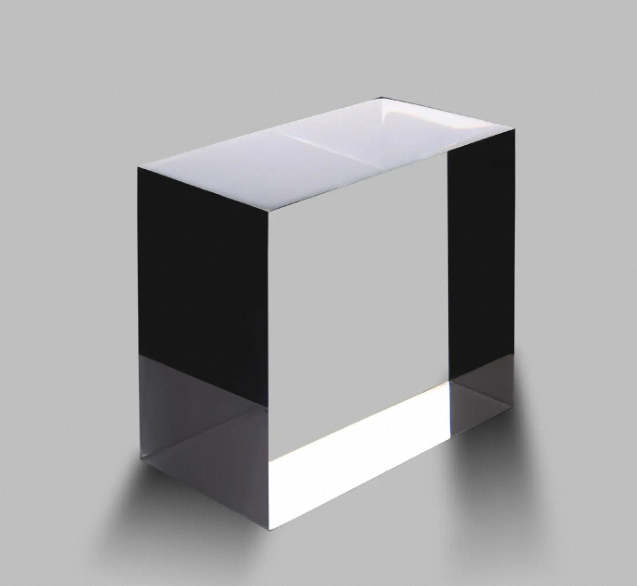Chemical Composition
Non-reactive nature with saltwater
You will find that the chemical composition of acrylic boards makes them non-reactive with saltwater. This property ensures that the boards do not corrode or degrade when exposed to marine environments. Unlike some materials that may react with saltwater, acrylic boards maintain their integrity. This non-reactive nature provides you with a reliable option for long-term use in marine settings.
UV resistance and its importance
Acrylic boards also offer UV resistance, which is crucial in marine applications. The sun's rays can be harsh, especially at sea. UV resistance prevents the material from yellowing or becoming brittle over time. This feature ensures that your acrylic board remains clear and strong, even after prolonged exposure to sunlight. You benefit from both durability and aesthetic appeal, making acrylic an excellent choice for outdoor marine use.
Physical Characteristics
Durability and impact resistance
Acrylic boards boast impressive durability and impact resistance. You can rely on them to withstand the physical demands of marine environments. Whether it's the force of waves or accidental impacts, acrylic boards hold up well. Their robust nature ensures that they do not crack or shatter easily, providing you with peace of mind in challenging conditions.
Clarity and aesthetic appeal
The clarity of acrylic boards enhances their aesthetic appeal. You will appreciate the crystal-clear view they offer, which is especially important in applications like marine windows and aquariums. This clarity does not diminish over time, thanks to the material's resistance to yellowing. The combination of transparency and strength makes acrylic boards a preferred choice for those seeking both functionality and beauty in marine applications.
Comparison with Other Materials
Acrylic vs. Polycarbonate
Strength and weight differences
When you compare acrylic boards to polycarbonate, you notice distinct differences in strength and weight. Acrylic boards offer excellent strength, making them suitable for various marine applications. However, polycarbonate is even stronger, providing higher impact resistance. Despite this, acrylic boards are lighter, which can be advantageous in situations where weight is a concern. You might prefer acrylic for applications where ease of handling and installation are priorities.
Cost-effectiveness
Cost plays a crucial role in material selection. Acrylic boards generally cost less than polycarbonate. This makes them an attractive option if you are budget-conscious. While polycarbonate offers superior strength, the cost difference can be significant. You may find that acrylic provides a good balance between performance and affordability, especially in applications where extreme strength is not necessary.
Acrylic vs. Glass
Transparency and breakage resistance
Acrylic boards and glass both offer transparency, but acrylic has the edge in breakage resistance. You will find that acrylic boards are less likely to shatter compared to glass. This makes them safer for marine environments where impacts can occur. Acrylic maintains its clarity over time, ensuring that you enjoy unobstructed views without the risk of breakage.
Maintenance and longevity
In terms of maintenance, acrylic boards require less effort than glass. You will appreciate that acrylic does not need frequent cleaning to maintain its appearance. Additionally, acrylic boards resist yellowing and degradation, contributing to their longevity. Glass, on the other hand, may require more upkeep to prevent scratches and maintain clarity. You might choose acrylic for its ease of maintenance and long-lasting performance in marine settings.
Real-world Applications and Case Studies
Use in Marine Windows and Portholes
Case study of a yacht installation
Imagine you're on a yacht, surrounded by the vast ocean. The windows and portholes play a crucial role in your experience. A recent case study highlights the use of acrylic boards in yacht installations. The yacht owner chose acrylic for its clarity and durability. The installation process was straightforward due to the lightweight nature of acrylic boards. After the installation, the yacht's windows provided clear views of the sea. The owner reported satisfaction with the acrylic's performance, noting its resistance to saltwater and UV rays.
Feedback from marine engineers
Marine engineers often recommend acrylic boards for marine windows and portholes. They appreciate the material's non-reactive nature with saltwater. Engineers highlight the ease of maintenance and long-lasting clarity. Acrylic boards do not yellow or degrade, even after prolonged exposure to harsh marine conditions. This feedback underscores the reliability and effectiveness of acrylic in marine applications.
Aquariums and Underwater Observatories
Example of a public aquarium
Public aquariums rely on acrylic boards for their exhibits. One notable example is an aquarium that replaced its glass panels with acrylic. The change improved the visitor experience. Acrylic's clarity allowed for unobstructed views of marine life. The aquarium staff noted the ease of cleaning and maintenance. Acrylic's impact resistance also reduced the risk of damage from accidental impacts.
Benefits observed over time
Over time, the benefits of using acrylic boards in aquariums and underwater observatories become evident. You will notice that acrylic maintains its transparency and strength. The material's resistance to saltwater and UV rays ensures longevity. Visitors enjoy clear views, while staff appreciate the reduced maintenance efforts. Acrylic boards prove to be a valuable investment for these facilities, enhancing both functionality and visitor satisfaction.
Acrylic Board offers numerous benefits in marine applications. You gain from its saltwater resistance, ensuring longevity and reliability. Its non-reactive nature with saltwater prevents corrosion, making it a dependable choice. The UV resistance maintains clarity and strength, even under harsh sunlight. You find that its durability and impact resistance provide peace of mind in challenging conditions. Acrylic Board proves to be a cost-effective and efficient solution for marine environments. Its suitability for marine use is reaffirmed by its ability to withstand the demanding conditions of the sea.

